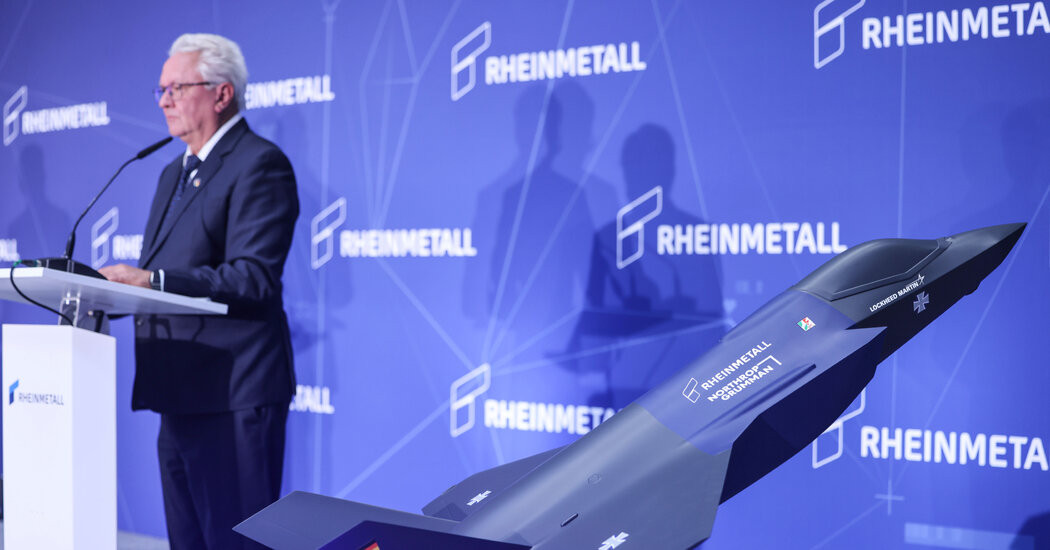

Rheinmetall, an automotive and arms maker, is using a partnership with the builder of F-35 fighter jets to move into aviation and expand its presence in America.
On the edge of a former Cold War-era air base, Germany’s largest military contractor began assembling components this week for F-35 fighter jets in a gleaming new factory that symbolizes where Rheinmetall sees its future — in aviation and the United States.
The factory in Weeze, on Germany’s western border, is the latest move by Rheinmetall, a company best known for producing tanks and artillery, to expand its portfolio into aviation and solidify its role in the U.S. defense market, the world’s largest. It is also a reflection of the greater role the defense industry is already playing in Europe.
“This is just the start for us,” said Armin Papperger, Rheinmetall’s chief executive, adding that the factory had been built to U.S. standards, making it a possible location for further cooperation with U.S. contractors.
Rheinmetall, based in Düsseldorf, emerged as a leading beneficiary of the German government’s increased military spending after Russia’s invasion of Ukraine in 2022. The company reported record growth last year, and its market capitalization has jumped to more than 91 billion euros at the start of July, from some €4 billion in 2022.
Last week, members of the North Atlantic Treaty Organization pledged to raise their spending on the military to 5 percent of domestic income by 2030, meaning that even more money will be flowing into the industry.
Germany has been focused on making sure that much of its increased military spending stays at home. Nearly half of the €137 billion that Berlin invested in military equipment from 2020 to 2024 went to German companies, according to the Kiel Institute for the World Economy. Another third went to partnerships that involved a German company.



